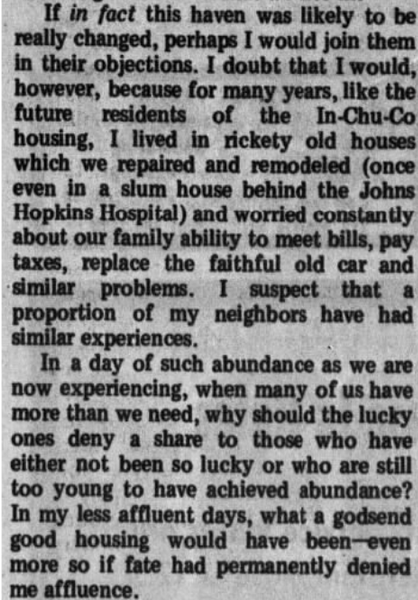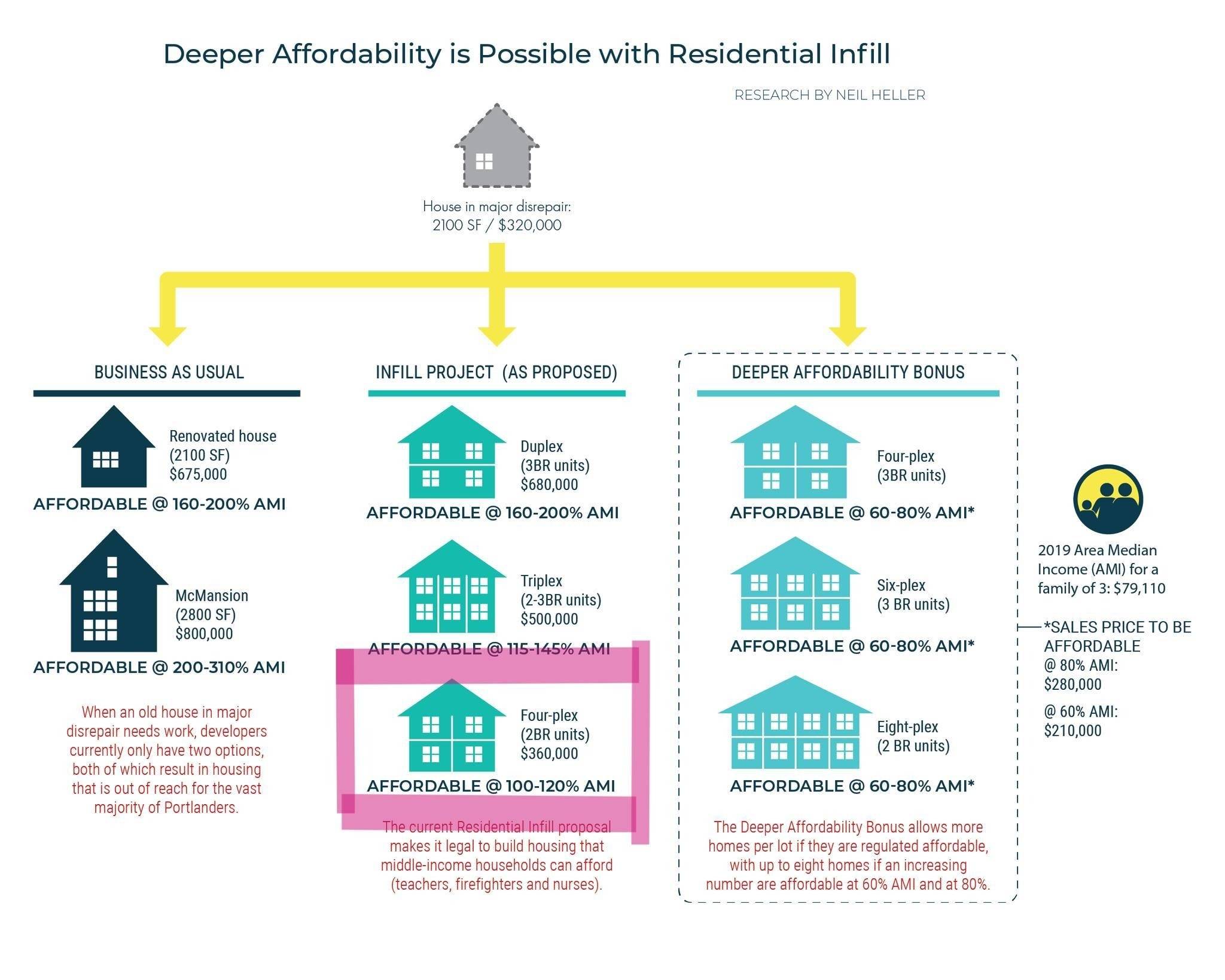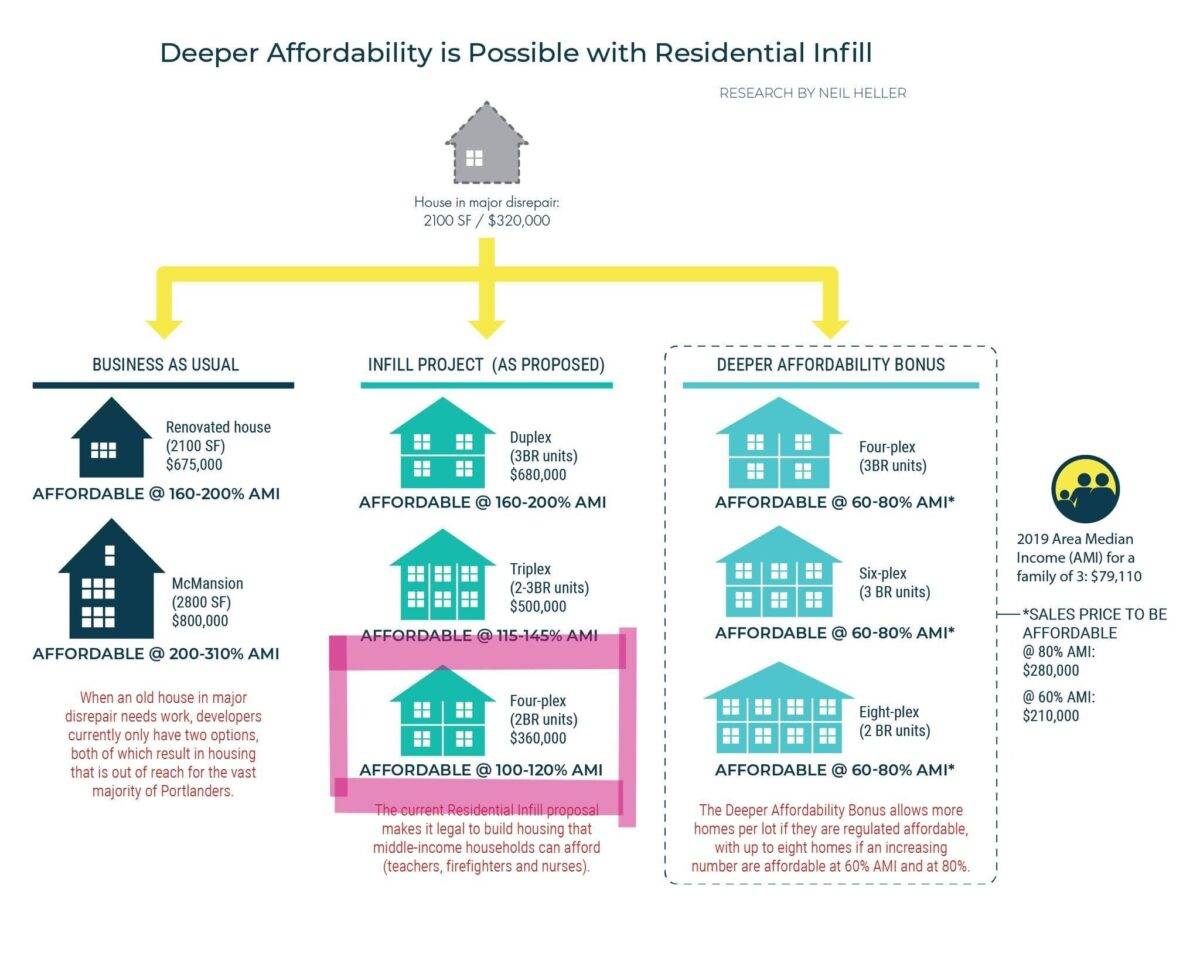Our housing crisis did not take shape in a day, and the tools proposed in the text amendment are responses to the recognition that we need more opportunities for housing in our community, and that we needed more than just new, large rental apartments. Even CHALT leaders have recognized that “missing middle” infill development is a good way forward.
But since the proposal was released in September, residents met this proposal with fierce opposition. In emails to the town council, yard signs, and comments at public meetings opponents to this proposal have acted as if the town council was preparing to bulldoze their home and kill their dog, not make very modest changes to what kind of homes we can build in our neighborhoods.
Frankly, we’re astonished by the vitriol some Chapel Hill residents have expressed in recent months. We live in a wealthy community, one that reliably votes for Democratic candidates at all levels of government. It’s a town of “Yes We Can,” and “Build Back Better,” not “Make America Great Again.” Just by the stint of living here, most people have it made. They can afford to be generous.

But expressions of fear (of developers) and loathing (of students) gets results in this town. The explosion of anger at the council meeting on January 25th persuaded the council to pause the public hearing, giving the planning staff time to make a good faith effort to hear from neighbors about how they could improve the proposal.
The planning staff did a lot of outreach, but they ended up talking mostly to the owners of single-family homes in our most expensive neighborhoods, as if all town decisions must first pass muster with the most privileged among us before adoption. While residents had some good ideas—we’d like to see more code and parking enforcement too—for the most part these meetings were just more rage sessions for people who preemptively decided to oppose whatever the town was doing.
On April 10, in a town council work session, the planning staff presented its revised plan. In the world of land use and planning, ambitions are almost always dialed down, not up, as people decide that perhaps our housing needs aren’t so urgent when angry homeowners are at the gate. Instead of allowing three- and four-family homes everywhere, which would have helped ensure that our community becomes more equitable, not less, as the value of land goes up, the planning staff suggested only legalizing duplexes and small cottages in most of our neighborhoods.
Instead of thanking the town for listening to their perspectives, and recognizing the significant changes to the proposal reflecting this feedback, the neighborhoods that attended the meetings that were arranged by the town instead banded together under the banner of “Save Chapel Hill,” a group that seems dedicated to the proposition that the thing to preserve in our community is our exclusivity, not our idealism. You’ve seen their yard signs.
We’re all for compromise
We understand our housing challenges are complex, and there are many ways to meet them. We also know that our town’s planning and housing departments, as well as the town council, are doing “all the things” when it comes to addressing our housing crisis. But land use reform is a necessary part of that change, as it’s single-family-only zoning that created many of these problems in the first place.
If the intent of the “pause” in the discussion of the text amendments was to build consensus, we think it failed. And not because the town staff, the town council, or many of the supporters of the proposal were unwilling to budge. It’s because the opponents weren’t just opposed to triplexes. They were against new housing in their communities, period, that is different in any way from the housing the currently exists there. Mammoth single-family homes, those are fine; modest-sized duplexes, they are unconscionable.
On May 24, the Chapel Hill Town Council heard the revised version of the text amendment. (We liveblogged it.) While some people spoke in opposition, we were gratified that so many more people spoke in favor of adding more housing choices to our community.
We think this is a great proposal, even in its reduced form, and something more ambitious would be even better. In Portland, Oregon, which legalized missing middle housing a few years ago, realtors are able to show their middle-income clients brand new homes in the city for the first time in decades. While we’ll never again see $350,000 single-family homes in our community, housing reform can make it possible to build $350,000 cottages and townhouses.

This week’s text amendment is a beginning, not an end, to building a more equitable, prosperous, and welcoming community. We understand that not everyone shares that vision.
But our current council needs to act. We’re not going to placate the implacable. The proposed text amendment is good policy, one that will actually save Chapel Hill as a place for everyone.
College towns are meant to be a crossroads, not a resting place
Every year, thousands of bright, ambitious, and idealistic young people join our community, bringing with them fresh perspectives and an interest in bettering themselves and our community. Some are here for just a year or two, while others stick around for longer.
Our community is a better place when we welcome people from all backgrounds. Deciding that our community is “already complete,” as some opponents to the text amendment have suggested, is to willfully ignore the many challenges we currently face, and the ones that are almost assuredly at our doorstep if we fail to build a diverse range of housing types. Chapel Hill isn’t great if you don’t have a lot of money, or live alone, or get divorced and want to live near your kids, or have an aging parent who has to live across town because you can’t build a duplex in your neighborhood. But it can be better. On June 21, the town council has the opportunity to take a step in the right direction.

